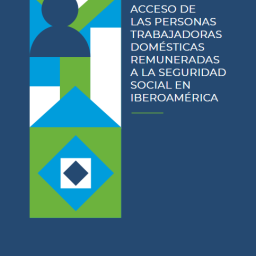The study analyzes the access of domestic workers to social security benefits in Ibero-America, as well as the measures developed to facilitate such access and the obstacles they encounter. To support this analysis, a Country Profile (Annex III) was prepared for each of the 22 countries in the Ibero-American community, systematizing the information and serving as a resource for advocacy and the discussion of public policies and legal reforms.
The conclusions drawn from this study reveal a notable exclusion of domestic employment from various social security benefits—sometimes due to legal discrimination, and in other cases due to factors related to the functioning of the relevant institutions, procedural design, or noncompliance with regulations. However, the study also identified good practices, creative solutions, and proactive measures by various social actors.
In this context, challenges and proposals are identified to increase the legal and effective coverage of domestic employment within social security, including proposals put forward by the domestic workers themselves, specifically by leaders of domestic workers’ organizations.
